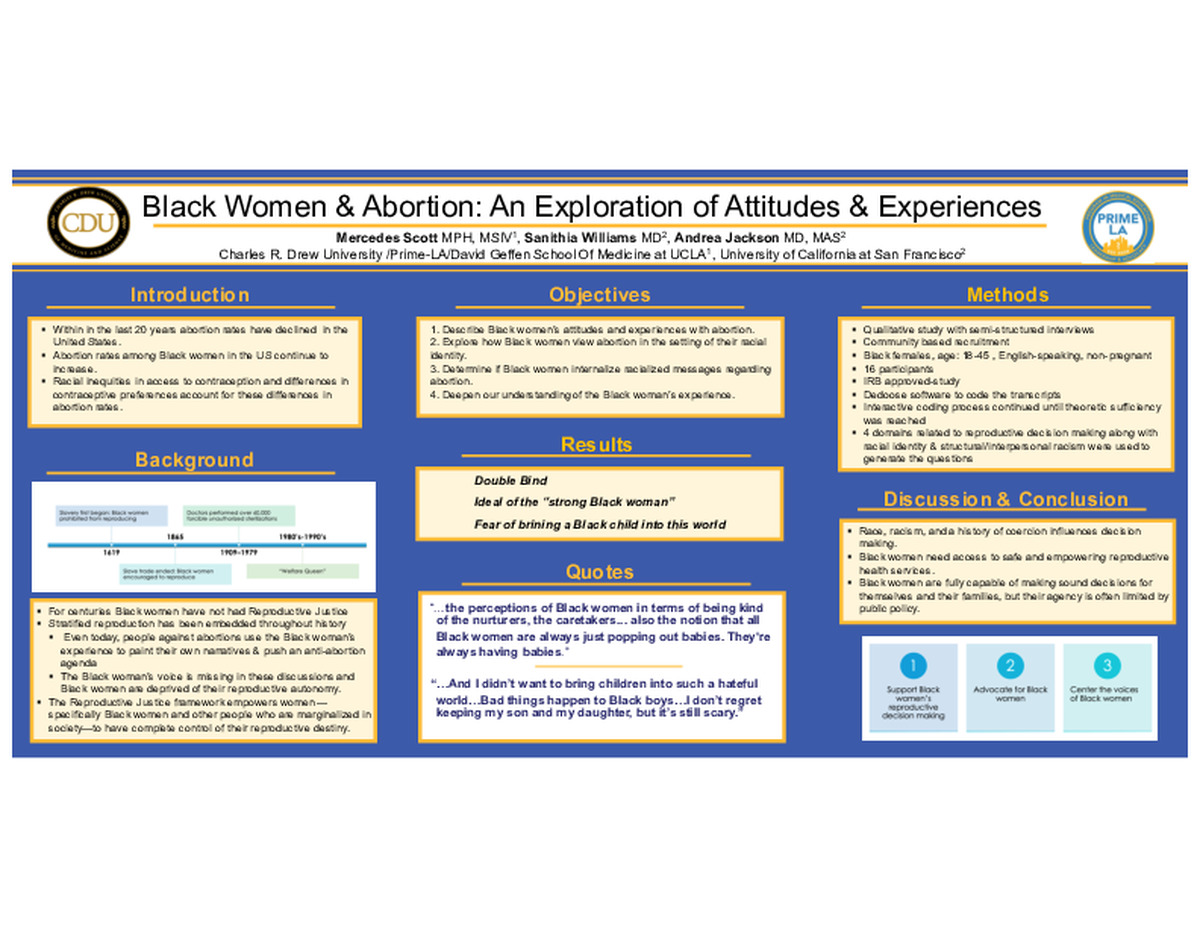-
Author
Mercedes Scott -
Co-author
Mercedes Scott MPH, MSIV, Sanithia Williams MD, Andrea Jackson MD, MAS
-
Title
Black Women & Abortion: An Exploration of Attitudes and Experiences
-
Abstract
Background: While the abortion rates have declined in the United States within the last 20 years, abortion rates among Black women in the United States continue to increase. Racial inequities in access to contraception and differences in contraceptive preferences account for these differences in abortion rate. It was out of these inequities and understanding that reproduction is not only about being pregnant or not, that the framework of reproductive justice was born. Reproductive justice empowers women—specifically Black women and other people who are marginalized in society—to have complete control of their reproductive destiny. Our objective is to better understand how Black women interpret and apply their lived experiences to decisions pertaining to abortion. We believe that this qualitative study will assist researchers, advocates and funders in understanding how they can best use their expertise to effectively improve the reproductive health and outcomes of Black women in the United States. Also, by bringing to attention the influences of race, racism, and a history of coercion around fertility, this work can increase Black women’s ability to access safe, empowering reproductive health services and to be supported in their reproductive decision-making.
Objectives:
Described Black women’s attitudes and experiences with abortion.
Explored how Black women view abortion in the setting of their racial identity.
Determined if Black women internalize racialized messages regarding abortion.
Deepened our understanding of the Black woman’s experience.
Methods: We chose to conduct a qualitative study where we interviewed 16 Black women who were 18–45-year-old, non-pregnant and English speaking. We chose this study design because qualitative studies are hypothesis generating and we wanted to start with a broad perspective, where we allowed the Black women to lead the narrative and tell us where we should be going next.
Results: Various themes emerged such as, “The Double Bind”, the ideal of the “strong Black woman” and the fear of bringing a Black child into this world. All of which revealed that whether or not Black women choose to have an abortion is more complex and highlights the complexity that race plays in attitudes and decisions about abortion for Black women.
Conclusion: Reproductive autonomy is a cornerstone in patient-centered reproductive health care. While Black women are fully capable to make sound decisions for themselves and their families, their agency is often limited by public policy. If we are to close the gaps in reproductive health disparities, we must center the voices of Black women and honor their lived experience. Starting with these stories, will better lead us to community-centered and community-based solutions.
-
College
UUC
-
Zoom
-
PDF

